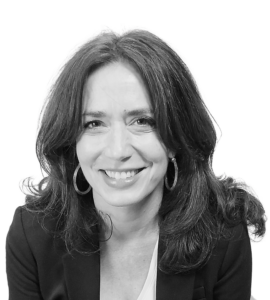A message from Rabbi Sara Abrams

As many of you know, I’ve recently welcomed a new being into my life—a puppy! I’ve also learned that many of you are experiencing new beginnings as well. Some have welcomed babies, graduated or are starting new schools, moved to Bend, joined the congregation, or begun new jobs. Life is full of beginnings and endings, and at this time of year, it’s also a season of vacations and planning for the year ahead.
Until we breathe our last breath, we have the capacity to grow and evolve, to move through life’s transitions—each time a little bit new and a little bit old. With my new dog, I feel as though I’ve started a new chapter, just as I begin my second year as interim rabbi with TBT.
This past year has been a blessing—getting to know many of you, learning about the community, teaching and studying together, praying with you, and supporting the synagogue’s leadership as you prepare (God willing) to welcome your new rabbi.
As we face our community’s internal challenges, we are also living through difficult national and global moments—the ongoing war in Israel, the increasing tension with Iran, and a general sense of instability in our country. The future feels more uncertain than usual. Regardless of our political views, this is a time when connection and community matter more than ever.
The Israelites in the desert had to learn to trust one another, identify new leadership, and prepare for growth before entering the Promised Land. We too need the sweetness of connection, of shared stories and dreams, and the opportunity to encounter the wisdom of our ancient tradition in fresh, vibrant ways. Sometimes that happens during Havdalah in the park, or on the ski slopes, or during Torah Study, services, or even while playing mahjong, sharing a glass of wine, tea, or coffee—or walking together by the river.
In these uncertain times, we’re called to reach out to one another and rediscover the innocence and goodness within ourselves and each other.
That’s what my puppy, Poppy Lu, has given me. She’s put me on her schedule—focused on her needs, her food, her habits, and her health. I barely have time for myself, and yet, I’m deeply grateful. Caring for her has grounded me in presence and patience and has given me the joy of keeping company with a living teddy bear. Her sweetness and innocence help sustain me amid the whirlwind of the news and the stresses of everyday life.
So, whether or not you have a puppy, or easy access to the beauty of nature, I pray that we all find ways to seek out life’s sweetness, to cherish the innocence in our children, our pets—or deep within ourselves.
Rabbi Sara
